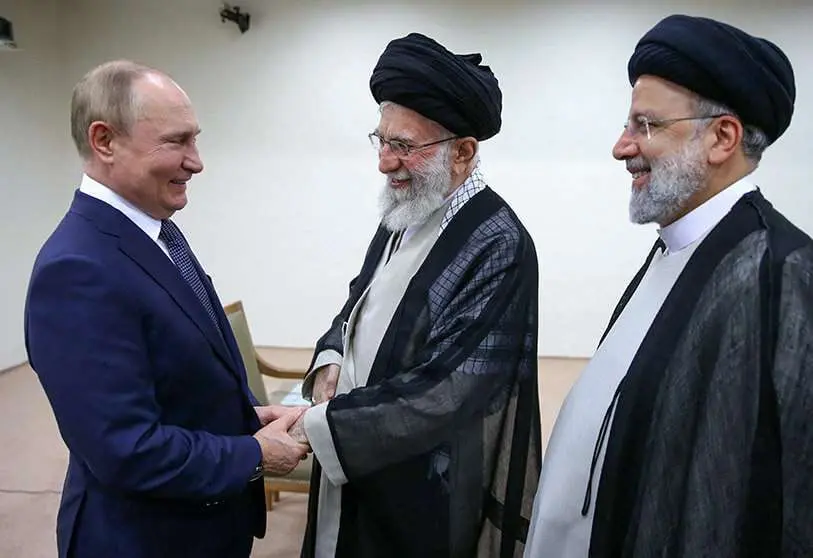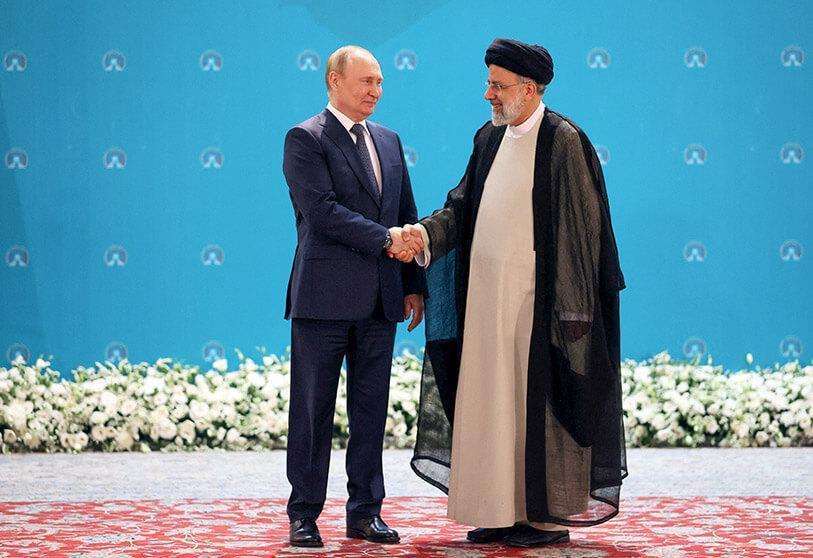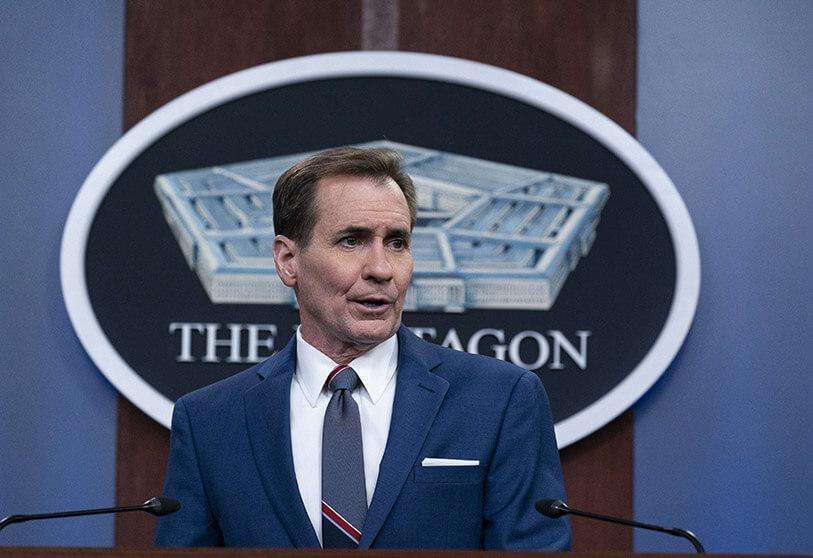Russia will send advanced military components to Iran in exchange for drones

First it was the situation between Russia and Ukraine that led to Iran being singled out for sending kamikaze drones to Moscow, allegedly used in the war with the Ukrainians. Now the UK is accusing the Kremlin of returning the favour to the country led by Ali Khamenei by sending advanced military components that "undermine international security". Although none of the countries involved have commented on the British accusations, Russia has repeatedly denied the use of Iranian drones in the invasion of Ukraine, although Iran did admit to having sold them before the outbreak of the war with Kiev.
It was UK Defence Minister Ben Wallace who accused Tehran of becoming 'one of Russia's main military backers'. In his statement to the UK parliament on the Russia-Ukraine conflict, he said that 'in return for supplying over 300 kamikaze drones, Russia now intends to provide Iran with advanced military components'. However, Wallace did not specify what kind of components he was referring to, so Reuters asked the Russian Defence Ministry and the Iranian Foreign Ministry without getting an answer.

On Monday, Russia attacked Kiev with kamikaze drones in what was the third Russian airstrike on the capital in less than a week. Despite the sanctions imposed by the UK, the US and the EU against manufacturers considered to be involved in arms sales, the exchange between Moscow and Tehran continues unabated. Indeed, EU High Representative for Foreign Affairs and Security Policy Josep Borrell urged Iranian Foreign Minister Mohammad Javad Zarif to suspend military support to Russia, a request that seems to have gone unheeded.
This is not the first time that the UK has alerted the international community to the Russian-Iranian arms trade. Tehran has long been seen as a threat as Russia's main military sponsor. And it is not the only one to show its concern. The United States, through its National Security spokesman John Kirby, believes that the partnership between the two countries has reached "an unprecedented level of military and technical support that is transforming their relationship into a full-fledged defence partnership".

Kirby himself denounced Iran's shipments for not respecting UN Security Council resolutions adopted in 2015 and supported by the nuclear deal, the Joint Comprehensive Plan of Action (JCPOA). Washington set in motion "the necessary tools to disrupt these activities", something that, for the moment, not only has not been achieved, but seems to be going further. Indeed, the instability in Iran since the death of Kurdish-born Mahsa Amini for improperly wearing a headscarf is causing even greater concern in the West.
That Tehran could increase its arms capacity in a context such as the one the country is going through is not a trivial issue in Europe. Moreover, Moscow is reportedly training Iranian pilots to use Sukhoi Su-35 fighters, a model Iran does not yet have, but which is expected to arrive next year from Russia. John Kirby also said that "these fighter jets will significantly strengthen Iran's air force in relation to its regional neighbours", thus increasing the threat posed by both countries to their neighbours and the international community.








